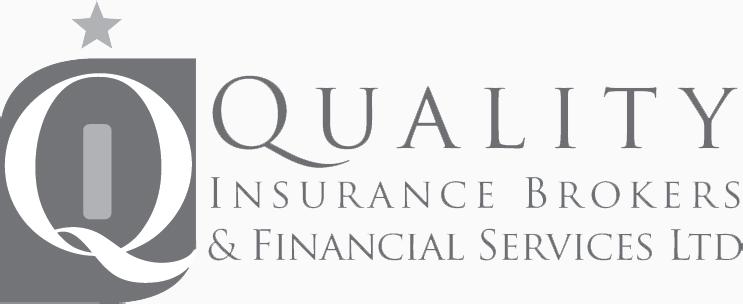




































stories by AKIL FRANKLYN
FROM ITS INCEPTION in 1994
to becoming a leader in human resource solutions across the Caribbean, Profiles Caribbean Inc. has built an enduring legacy of innovation and service. Founded in August 1994, the company was born out of a vision to introduce psychometric assessments and other scientific HR tools to the region. By September of the same year, Profiles Caribbean signed a groundbreaking agreement with Profiles International Inc., becoming the National Director for the Caribbean and taking responsibility for over 20 territories.
Profiles Caribbean officially launched in December 1994 at the Island Inn Hotel. The company quickly gained traction with its unique approach to HR, and by April 1995, it welcomed Profiles Trinidad and Tobago as its first Strategic Business Partner. Shortly after, HRD Profiles Jamaica Limited joined the network in September 1995, marking the start of a growing regional footprint.

By 1998, Profiles Caribbean expanded its services with the introduction of its recruitment line of business, cementing its role as a comprehensive HR solutions provider. That same year, the company strategically sold its operations in Puerto Rico and the Dominican Republic, focusing on strengthening its presence across the Englishspeaking Caribbean.
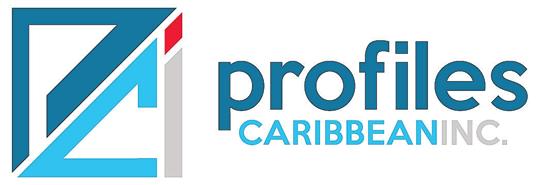
The 2000s brought international recognition, with Profiles Caribbean being named Profiles International’s National Director of the Year in both 2000 and 2002. The company also moved into its permanent home on Belmont Road, St Michael, in 2002, further solidifying its base of operations.
The Small Business Association recognised its entrepreneurial excellence with awards in 2003 and 2008, including the coveted Entrepreneur of the Year title.
In 2011, Profiles Caribbean was honoured with the













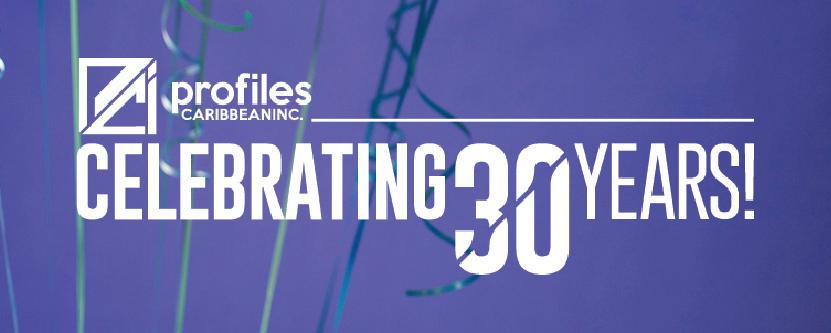
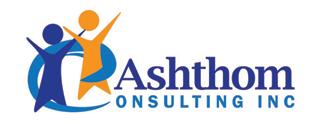
Profiles International Pioneer Award for being the first National Director outside of North America. Three years later, when Profiles International was acquired by John Wiley and Sons, the company adapted by diversifying its offerings, acquiring a leadership training franchise from Crestcom International.
The decade closed with significant milestones, including the completion of office expansion works in 2018 and the establishment of a partnership with SHRM, representing Barbados and the Eastern Caribbean. By 2019, Profiles Caribbean continued to innovate, signing an agreement with Genos International to deliver emotional intelligence solutions to the region.
With a subsequent break due to the COVID-19 pandemic, the company will continue its growth path by focusing on training, leadership development and executive coaching.
As Profiles Caribbean celebrates 30 years, its history stands as a testament to visionary leadership and commitment to excellence. From its modest beginnings to becoming a trailblazer in HR practices, the company has consistently demonstrated resilience and adaptability, helping to shape the future of HR in the Caribbean.

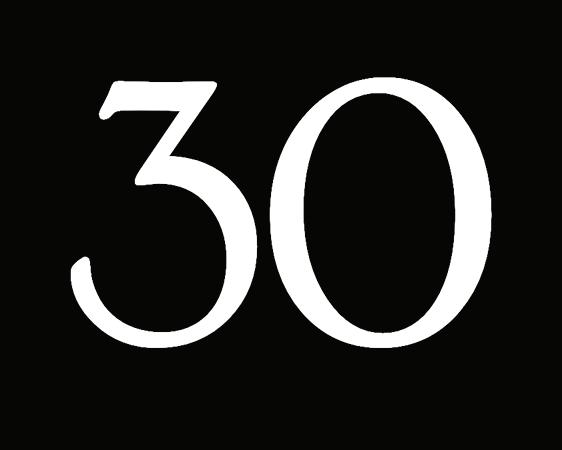
to Barbados’ corporate and Human
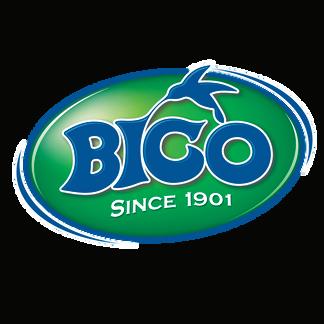
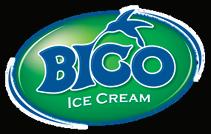


For CEO and founder Peter Downes, the journey to establishing Profiles Caribbean Inc. in 1994 was a bold leap and a natural progression. Formerly the president of an insurance company, Downes realised there was nowhere else to climb within the corporate ladder after declining a transfer to the corporate office in The Bahamas due to family commitments. With an entrepreneurial spirit, he decided to forge his own path. “I always had a very entrepreneurial spirit, so it wasn’t difficult for me to look for an opportunity to build or to grow a business,” said Downes. Thus, Profiles Caribbean was born, a pioneering company dedicated to psychometric assessments and other HR services in the region.
Downes first encountered psychometric assessments through a close friend who brought a package from a trade show in New York. After reviewing the material, he saw its potential to revolutionise human resource practices. “I felt that this was an opportunity for me to build and develop a business that was unique and would make a significant difference to organisations in the region,” he added. His conviction led to securing rights for over 25 Caribbean territories, marking the start of Profiles Caribbean’s impressive journey.

owned by John Wiley and Sons) positioned it to excel. “We were actually the first National Director to sign up with Profiles International,” said Downes. “Getting in early meant that the bigger countries like Germany and Australia had not yet joined, so we were able to shine at a very early stage.”
This foresight and expansion into territories like Jamaica, Trinidad, and Puerto Rico contributed to its international acclaim, including the prestigious Profiles International National Director Award for Performance.
Downes credits much of the company’s success to his adaptable leadership style. “You’ve got to have an affiliative approach to leadership in helping partners build their own businesses as they are entrepreneurs in their own right,” he explained. “Similarly, if you have a small staff, you have to encourage them and lead by example.” This balanced approach has been instrumental in fostering long-term relationships and driving innovation.
Introducing a novel concept at the time like psychometric assessments was not without its hurdles. The primary challenge, according to Downes, was overcoming the level of scepticism that existed. “It was difficult getting people to understand the importance of hiring and developing the right people as well as using the available science,” he said. Profiles Caribbean addressed this by hosting seminars, including an inaugural one featuring the president of Profiles International, and educating clients through newsletters and oneon-one presentations.
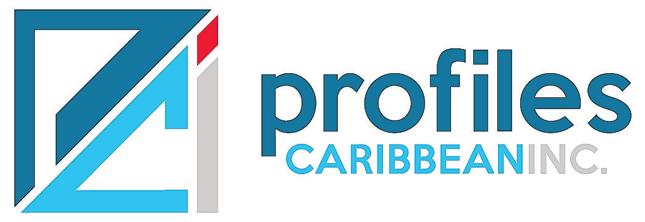
Over time, these efforts paid off, and the science of psychometric testing gained acceptance across the region.
Profiles Caribbean’s innovative approach and strategic partnerships throughout the Caribbean cemented its reputation. The company’s early involvement with Profiles International (now







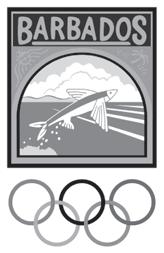
Profiles Caribbean has significantly influenced HR practices in the region, particularly in the hiring process. The company’s efforts to promote SHRM (Society for Human Resource Management) certifications have also elevated the professional standards of HR practitioners. “It’s important for HR professionals to not only have experience but also the knowledge, skills, and certification to back up their decisions as well as to make a significant contribution to their organisations,” said Downes.
As Profiles Caribbean celebrates its 30th anniversary, Downes is focused on the future. “We are going to be spending a lot more time focusing on the soft skills through training and development,” he said. Emotional Intelligence, team-building tools and continued efforts in HR certification remain key priorities. “We still have a lot more work to do in that area, and that’s going to be one of our focuses over the next couple of years,” he added. Profiles Caribbean also plans to introduce new resources and tools to enhance its offerings.
Downes’ journey exemplifies the power of innovation and perseverance. As Profiles Caribbean looks to the future, its legacy of transforming HR practices in the Caribbean is firmly established. (AF)

by ANDREW S. DOWNES PhD, Professor Emeritus of Economics, University of the West Indies, and Director of Profiles Caribbean Inc.
IT HAS BEEN well established that human resources development (HRD), that is, improvements in the knowledge, skill, and abilities of persons, is critical to productivity growth, economic growth, poverty reduction, and long-term job creation in both developed and developing countries. These improvements also enhance the ‘well-being’ and ‘happiness’ of the population of a country.
Great emphasis is placed on improving the educational and training system and the on-the-job environment as a means of developing the human resources of the country over time. It is expected that as the economic, technological, demographic, and physical environments change, there will be a need to upgrade the human resources of the country as the job destruction and job creation processes take place.
Skills development has received great attention over the years. Skills can be broadly classified as basic skills, which facilitate the acquisition of knowledge (literacy, numeracy, computing, comprehension, writing, critical thinking, and active learning) and cross-functional skills which allow persons to function effectively in a range of jobs (technical, social, problem-solving, leadership, creativity, and teamwork).
In the context of Barbados, the demand for various skills, has changed according to the changing economic structure of the country. The production structure has been transformed from being an agricultural-based economy (sugar cane for sugar production) to light manufacturing in the 1960s and 1970s (garments, electronics assembly) to services from the 1980s (tourism, business, and financial services). These sectors have been supported by construction, public utilities, distribution, and government services.
The transformation of the Barbadian economy into a “new economy” has emphasised tourism (heritage, education, and medical); new manufacturing (biotech products, pharmaceuticals and nutraceuticals, branded rum, agro-processing); creative industries; health and wellness; renewable energy and information and communications technology (ICT).
Professor Mariana Mazzucato has identified three transitions: a green and blue economy transition based on renewable energy and maritime resources, a health transition based on pharmaceuticals and nutraceuticals, and a digital transition based on ICT as part of a missiondriven economic strategy for Barbados.
An important aspect of the development of the ‘new economy’ is the human resources requirements of various enterprises. An analysis of the current Barbadian labour market points to an ageing population, a declining labour market participation rate, high youth (16 to 24 years) unemployment, a declining rate of employment growth, general improvement in the educational attainment of the labour force, and an increase in those identifying as ‘selfemployed’.
The challenge for the labour market and its institutions is to meet the occupational and skill needs of the ‘new economy’ over the next decade or two, given that there are different periods required to educate and train different categories of skilled labour (high, medium, and low).
A study of the future labour demand in Barbados indicates increased demand for managerial and professional workers and technical professionals, with many of these occupational groups being in STEM (Science, Technology, Engineering, and Mathematics) areas

(such as artificial intelligence).
Key skills required include adaptability, problem-solving, creativity and innovation, customer service, and time management.
It is expected that educational and training institutions would need to be transformed and upgraded to meet the skill needs of the ‘new economy’. In addition to building capacity and upgrading plant and equipment in these institutions, there is a need for greater private sector and other stakeholders’ involvement in curriculum development and programme delivery.
An efficient labour market information system must complement these institutions to reduce job search costs and minimise job mismatches. In the context of the CARICOM Single Market and Economy (CSME), there will be a need to look beyond the domestic space for key personnel and the provision of educational and training services.
Congratulations to Profiles Caribbean on making a valuable and significant contribution to human resources management and development practice over the past 30 years.


























































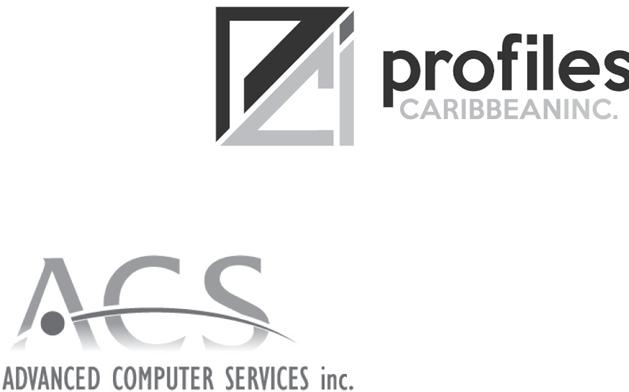

by DR ASHWELL THOMAS , Director of Profiles Caribbean Inc.
THE BUSINESS ENVIRONMENT is competitive and dynamic, and organisations need tools that drive continuous improvement, enhance employee performance, and support strategic growth. The traditional performance appraisal system, a once-a-year evaluation often perceived as a bureaucratic exercise, is outdated, ineffective, and detrimental to employee engagement and organisational progress. Replacing this with a robust Performance Management System (PMS) based on Key Performance Indicators (KPI) aligned with strategic goals is essential for fostering a high-performance culture.
1. Traditional appraisals are outdated and ineffective
Traditional performance appraisals rely heavily on subjective evaluations and infrequent feedback. Typically conducted annually or semi-annually, they focus on past performance rather than driving future growth. Employees often leave such reviews feeling demotivated or needing clarification about how to improve. Furthermore, Deloitte research shows that up to 70% of employees find traditional appraisals stressful or biased, leading to disengagement rather than motivation.
In contrast, a KPI-based PMS emphasises regular feedback, clear metrics, and continuous improvement. It establishes an ongoing dialogue between managers and employees, ensuring everyone remains aligned with organisational goals and expectations.
2. Aligning individual performance with strategic goals
One key area for improvement in traditional appraisals is the disconnect between individual performance and the broader organisational strategy. Employees may complete tasks effectively but only sometimes contribute to the company’s strategic goals.
A KPI-driven PMS directly links individual performance to the organisation’s strategic objectives. Employees understand how their work impacts the organisation’s success by setting clear and measurable KPIs—such as revenue growth targets, customer satisfaction scores, or process efficiency metrics. This alignment promotes accountability and ensures every team member works towards common strategic goals.
For example:
• A sales team’s KPI could be tied to a company’s strategic goal of increasing market share.
• A customer service team’s KPI could be linked to enhancing customer satisfaction and loyalty.
This approach ensures that every effort contributes to the company’s overarching mission and helps achieve the strategic goals set by the leadership team.
3. Objective, data-driven performance measurement
Traditional appraisals are prone to bias, inconsistency, and subjectivity, which can lead to perceptions of unfairness and favouritism. These factors undermine employee morale and create a culture of distrust.
A KPI-based PMS, on the other hand, leverages objective, quantifiable metrics to evaluate performance. When employees are assessed based on data, such as productivity rates, quality of output, or sales figures, the process becomes transparent and fair. Objective KPIs reduce ambiguity, allowing employees to understand what is expected and how success is measured. This fairness inspire confidence in the system’s objectivity, reassuring employees and managers.
4. Continuous improvement and adaptability
The business environment is evolving, and dynamic and annual appraisals must keep up. Traditional systems need more flexibility to adapt to shifting priorities, market conditions, or new strategic goals.
A KPI-based PMS, with its continuous feedback loops and frequent reviews, allows for real-time adjustments. Managers and employees can quickly recalibrate goals, set new priorities, and address challenges as they arise. This agility ensures that the organisation remains responsive, and employees stay on track. The system’s adaptability inspires a sense of motivation and excitement for the continuous improvement it enables.
5. Employee development and engagement
A significant area for improvement in traditional appraisals is their focus on evaluation rather than development. Employees often feel judged rather than supported, reducing motivation and growth opportunities.
A KPI-driven PMS fosters a culture of growth and learning. Regular performance discussions help identify skills gaps, career development opportunities, and areas for improvement. Employees feel supported by their managers and are more likely to be engaged when they see clear pathways for growth and achievement. The system’s focus on development encourages and supports employees in their professional growth, fostering a sense of empowerment and engagement.





































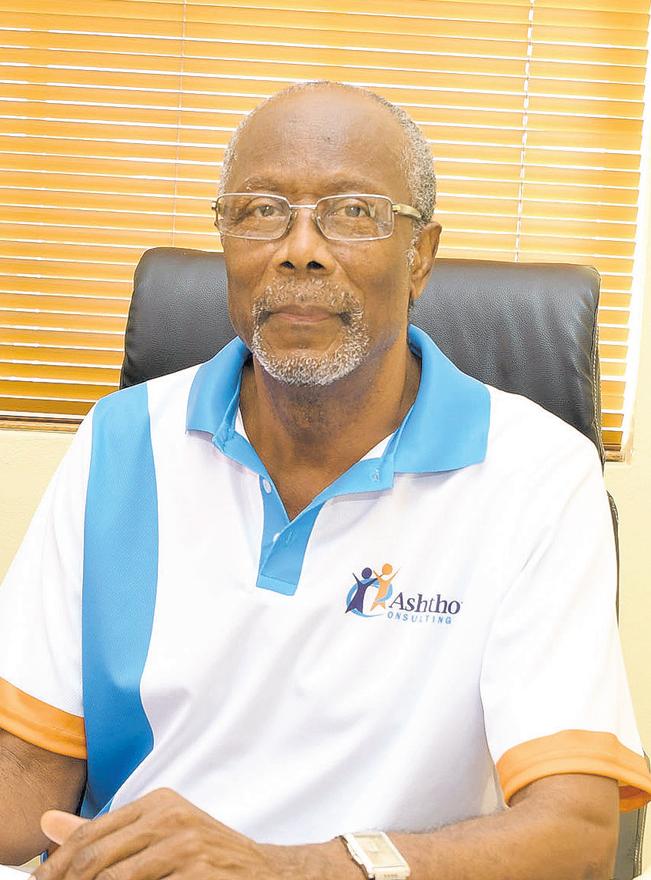












McKinsey and Company, Harvard Business Review, and Deloitte and Gallup studies have published performance management trends reports. These studies indicate that organisations with effective performance management systems experience 30-40 per cent higher employee engagement rates than those relying on traditional appraisals. In addition, these organisations often see a significant improvement in productivity and a reduction in employee turnover.
6. Promoting accountability and ownership


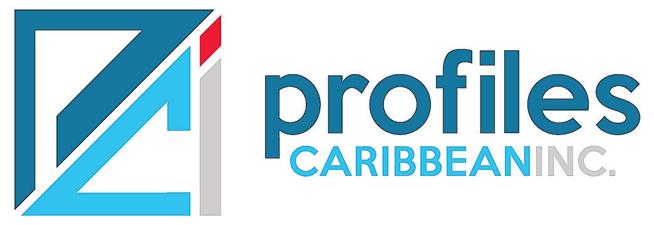


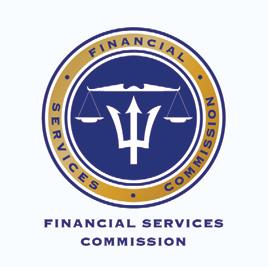

A KPI-based system empowers employees to take ownership of their performance. When individuals have clear, measurable goals and understand how their achievements tie into broader organisational objectives, they are more likely to feel responsible for their outcomes. This culture of accountability fosters higher levels of performance, responsibility, and initiative.
“BEING A MEMBER of SHRM and having the SHRM-SCP designation provides a sense of belonging to a global community. This matters because I have always been committed to implementing global human resource best practices and the insights through SHRM further enable this.”
– PAULA WALCOTT , SHRM-SCP, Chief People Officer | People & Culture Team, Sagicor Financial Company Ltd.


to
“EARNING THE SHRM-SCP certification was admittedly a challenging but invaluable experience. The process of study and learning forced me to pause, challenge my assumptions and think as a truly global, strategic professional.
The discussions within my cohort and with Dr Todd Brodie, our facilitator, were central to preparing for the exam. Reflecting on the journey, it reshaped my perspective and enhanced my professional credibility. I highly endorse and recommend the programme to anyone looking to elevate their HR career.”
–
SHANE HOWELL, SHRM-SCP,
Vice President, Employee Experience & Strategy | Human Resources Sagicor Life Inc.
IN 2024, my employer, the Barbados Vocational professional training and support leading to takes a comprehensive deep dive into what responsive senior HR professional. Even though I have been working in Industrial years, this challenging programme exposed holistic perspective. As a result, I was able in the field. The sessions facilitated by Profiles invaluable lifeline which helped me to better and to acquire techniques that guaranteed SHRM-SCP, I feel even more validated and really does provide an essential toolkit for I would not hesitate, therefore, to recommend career tremendously, positively impacted my ability to strategically problem solve.”
– VALERIE QUINTYNE,
SHRM-SCP, DIRECTOR (AG.) Barbados Vocational Training
30 year
On the outstanding achievement of your milestone.
We are happy to celebrate with you.




he 30th Anniversary Profiles Caribbean Inc. Scholarship Award is an all-encompassing package designed to support career growth and professional development. The scholarship, valued at BDS$3 830, provides recipients with access to the Society for Human Resource Management (SHRM) CP/SCP Preparation Workshop and an extensive suite of learning materials, both online and physical. This comprehensive offering ensures that recipients are well-prepared to excel in their SHRM certification exams.
SHRM certification is globally recognised and opens doors to new opportunities in the HR field. Here are some key benefits:
● Global Recognition: SHRM certification is acknowledged in 165 countries, giving HR professionals a competitive edge locally, regionally, and internationally.
● Professional Growth: With flexible recertification options, SHRM certification adapts to your unique career path and helps you stay relevant in the evolving HR landscape.
● Industry Leadership: Supported by SHRM – the world’s leading HR development organisation with over 60 years of expertise – this certification is a testament to your dedication and knowledge.
● Accredited Excellence: The certification is endorsed by The Buros Center for Testing, ensuring it meets the highest standards of quality and reliability.
Participating in the SHRM certification programme equips professionals with critical skills to enhance their performance in HR roles. For example:
– Talent Acquisition and Management: Develop strategies to attract, retain, and develop top talent in alignment with organisational goals.
– Strategic Planning: Gain expertise in aligning HR policies with business objectives, ensuring organisational success.
– Conflict Resolution: Build proficiency in resolving workplace disputes and fostering a positive, inclusive work environment.
– Compliance and Risk Management: Stay updated on global HR regulations and practices to mitigate legal risks and enhance workplace safety.
– Leadership Development: Learn how to cultivate leadership
Vocational Training Board, invested in the course of to my earning the SHRM-SCP. This course of study what it takes to be a present-day, resourceful and
Industrial Relations and Human Resources for nearly 35 exposed me to critical aspects of HR from an international and to adopt a worldview of HR and global best practices
Profiles Caribbean Inc. with Dr Todd Brodie were an better understand how to effectively use the study aids my success in the exam. Since being awarded the knowledgeable as a professional. The course content any HR manager.
recommend the programme, as it has already benefited my my interactions with people and further developed my
PROFILES CARIBBEAN offers a standout preparation course for HR professionals pursuing the SHRM-SCP or SHRM-CP certification. Designed for success, this programme provides all the tools and support you need to achieve your certification goals.
The course delivers comprehensive learning materials in both hard and soft formats, allowing flexible and convenient access to the SHRM Body of Competency and Knowledge (BoCK). The structured resources make complex concepts easy to understand, ensuring you’re thoroughly prepared.
Classes are conducted by an expert tutor from Florida with a wealth of HR experience. Held on Saturdays and Sundays from 9 a.m. to 12 noon, the sessions are conveniently scheduled for busy professionals. With small class sizes, participants benefit from personalised attention and interactive discussions, fostering a supportive learning environment.
What sets this programme apart is its focus on exam strategies and tips, equipping participants with practical
techniques to effectively navigate challenging questions and manage their time during the exam.
Participants hail from various Caribbean islands, creating a diverse and enriching peer network. This collaborative environment enhances learning, with participants sharing real-world HR experiences and insights.
Profiles Caribbean combines expert guidance, flexible study options, and a proven track record of success to ensure you excel in your SHRM certification. If you’re ready to advance your HR career with a globally recognised credential, this programme is your perfect pathway.
Enroll now and take the first step towards becoming a certified HR professional.”
– VINA FREDERICK- S HRM-SCP, St Lucia Regional Human Capital Analyst/Project Manager Unicomer Group
qualities in yourself and others, driving team performance and innovation.
By earning an SHRM certification, HR professionals not only validate their expertise but also demonstrate their commitment to advancing the HR profession. This distinction positions them as key contributors to their organisation’s success.
The SHRM programme offers two certification levels: SHRMCP (Certified Professional) and SHRM-SCP (Senior Certified Professional). Eligibility criteria are based on your educational background and HR experience:
SHRM-CP:
● Less than a Bachelor’s Degree: 3 years HR experience
● Bachelor’s Degree (HR-related): 4 years HR experience
● Bachelor’s Degree (Non-HR): 1 year HR experience
● Graduate Degree (HR-related): 2 years HR experience
● Graduate Degree (Non-HR): Currently in HR role + 1 year HR experience
SHRM-SCP:
● Less than a Bachelor’s Degree: 6 years HR experience
● Bachelor’s Degree (HR-related): 7 years HR experience
● Bachelor’s Degree (Non-HR): 4 years HR experience
● Graduate Degree (HR-related): 5 years HR experience
● Graduate Degree (Non-HR): Currently in HR role + 3 years HR experience
Interested applicants must meet the following requirements:
● Current SHRM membership
● Employment in an HR-related role
● Submission of a full CV via email to office@profilescaribbean.com
The application deadline is February 7, 2025, so aspiring candidates are encouraged to act promptly to seize this incredible opportunity.

www.nis.gov.bb


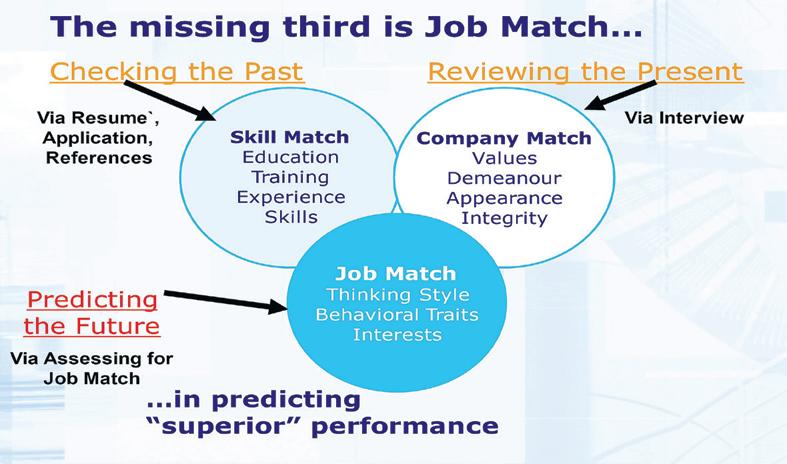
MANY OF US pride ourselves in our ability to make good hiring decisions whether it is acutely reviewing the candidate’s experience and qualifications through their CV/résumé, reference and/or background checking or conducting a structured interview. We may even go as far as using our own gut feeling to assess candidate suitability for the role.
The traditional two-dimensional approach to hiring is
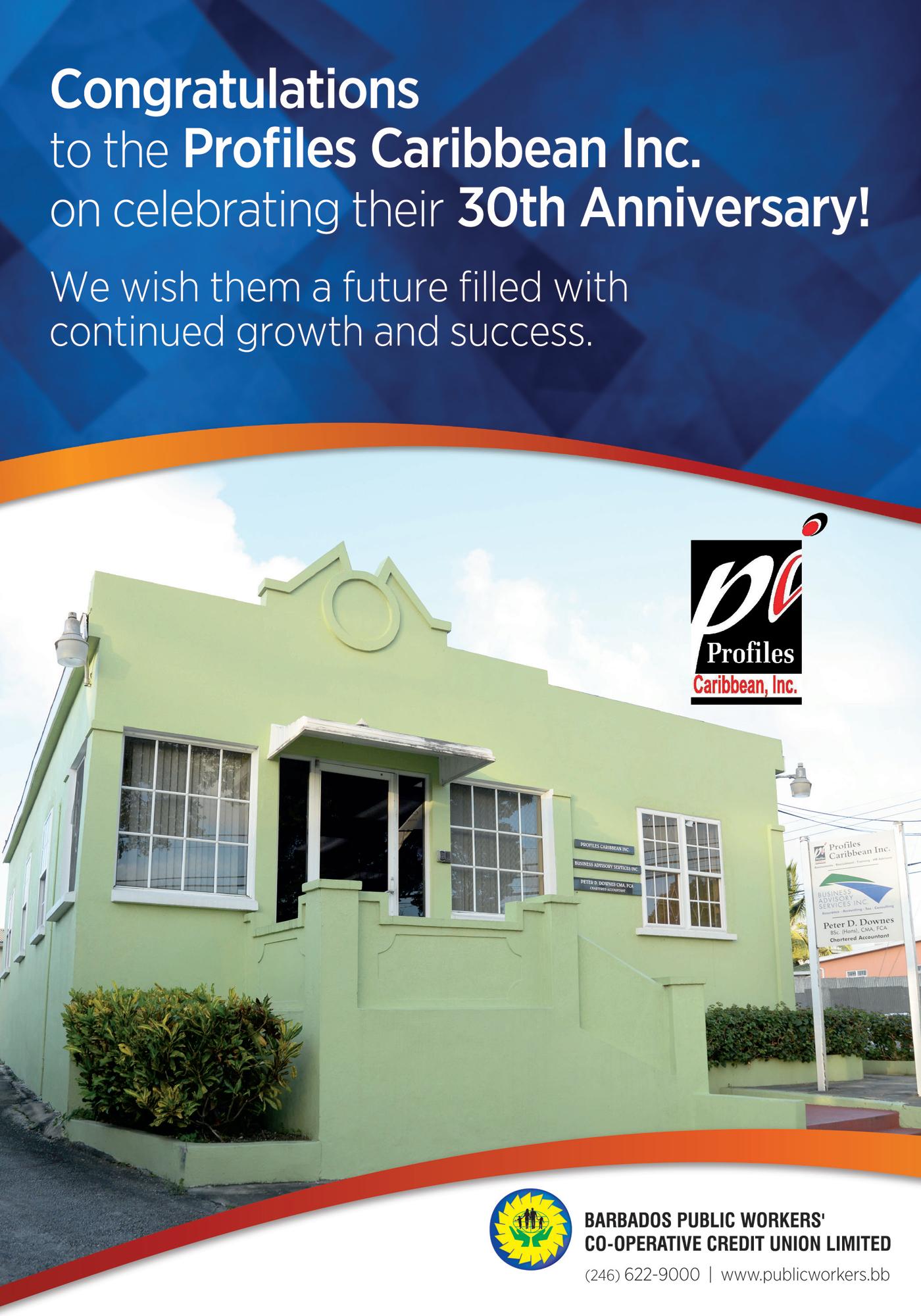
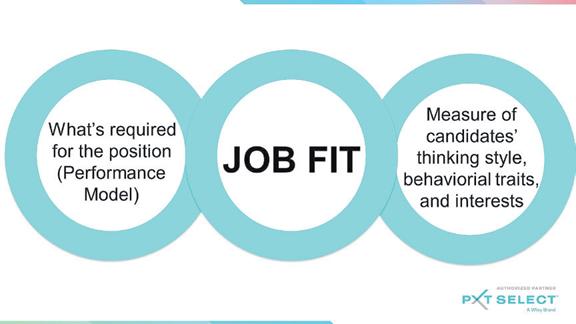
still used by many organisations today. This is checking the past and reviewing the present as illustrated above: Adding the third component of Job Match or Job Fit makes the process complete because we now add predicting future performance as a very important third component to the process. It is critical in today’s working environment to take the guesswork out of hiring decisions and get to know your candidates at a deeper level. This can be achieved by using a psychometric assessment- not just any assessment but one that is valid and reliable so that your decisions are backed by science. While we strongly endorse the use of psychometric assessments, many of them on the market today have not gone through the rigour of a recent validation study making them questionable when important hiring decisions need to be made. For example, one must ask: Does the assessment have questions that are culturally biased?
Ultimately, we must go a stage further and move away from ipsative assessments and use tools that match candidates to the requirements of the role as defined by decision-makers and hiring managers.
For the past 30 years, Profiles Caribbean has been promoting the concept of Job Fit to organisations throughout the entire Caribbean region. One assessment that we recommend to clients is the PXT Select™. It is a multi-purpose “Total Person” assessment that is used for selection, job matching, promotion, managing and succession planning. This assessment is considered as one of the most technologically advanced instruments used for measuring human potential and predicting job performance. It uses 21st century technology to predict job suitability and its customised features facilitate its use in any organisation considering geographical differences, a variety of management styles as well as unique corporate cultures. The assessment will measure cognitive ability (can they do the job), behavioural traits (how they will do the job) and occupational interests (willingness to do the job and level of engagement).
Apart from completing a ten-minute questionnaire to develop a performance model, organisations can use existing top performers in similar roles that have become vacant or available. Specific defined criteria can be used to select top performers who will complete the assessment. Then the data derived can be used to identify the shared characteristics that exist amongst them. Conducting these concurrent studies are very effective in creating performance models/job match patterns/job profiles.
For the hiring manager or a senior executive in the organisation, he/she may question the need for an assessment and the related cost just simply to determine job match. Why is it important to increase the odds of hiring the right person? The answer lies in determining what is the cost of hiring the wrong person?
Apart from the legal constraints associated with termination, if we took an employee earning $5,000.00 per month, a bad hiring decision can easily cost an organisation more than $15,000.00 when you consider for a new hire alone, the three months’ probationary period when there is little or no productivity, employer contributions to national insurance as well as supervisory and training costs. Conducting a psychometric is a very small fraction of that cost.
The concept of job match or job fit extends beyond hiring and can be applied to promotion, coaching, succession planning, team building and even re-organising. In today’s workplace, making informed hiring decisions is more critical than ever. By integrating job match into the process, organisations can significantly increase their chances of selecting the right candidate while reducing costly hiring mistakes. Tools like PXT Select™ provide scientifically backed insights that go beyond gut instincts and résumés, helping companies predict future performance with accuracy. Investing in such advanced solutions ensures not just better hires but also stronger teams, improved productivity, and long-term success.
ROHAN MALONE , Senior Associate – Talent Acquisition (JJS)

by ROHAN MALONE , Senior Associate – Talent Acquisition, Profiles Caribbean Inc.
WHETHER YOU ARE your career journey, a mid-career HR professional or even further along in your career aspirations, you may have a few queries about recruitment and what are the essential skills required by recruiters. Here are some insights for your benefit.
Recruitment as a professional career pursuit is rooted in human resources and is regarded as one of the specialised areas of the human resources management field. If you have an interest in, and a commitment to improving the performance of organisations, the field of recruitment may be of interest to you. In addition, if you want to contribute to enabling people to find areas of work that allows them to find fulfilment by contributing their unique talents and skills to helping organisations achieve their vision, mission and strategic objectives, recruitment may be a role that could be ideal for you.
The most valuable trait of a recruiter is a passion for making a positive difference and a lasting contribution to the success of organisations and people. The ideal recruiter wants to contribute to creating organisational success and to finding the best people who want to make significant contributions to the success of organisations. “Organisations are the greatest invention of all time.” Kilmann (1989)
To be a great recruiter, you need to understand the big picture first. Recruitment occurs within a context. The context of recruitment is the organisation, its culture, its vision, its mission and its strategic outlook. Without an understanding of these factors, you will be recruiting in a vacuum, and your chances of success would be minimal. The person being recruited must be able to fit in and function well within the context of an organisation’s culture, its perception of itself and its vision, goals, objectives and strategies.
Knowledge of human resources management derived from education, training, and experience is essential to be an effective recruiter. Recruitment requires respect for legal requirements and ethical employment practice.
Marketing skills and sales skills are important to recruiters who must be able to promote the merits of a career opportunity to prospective candidates and the value of a particular organisation while simultaneously promoting the potential value of a candidate or candidates to an organisation.
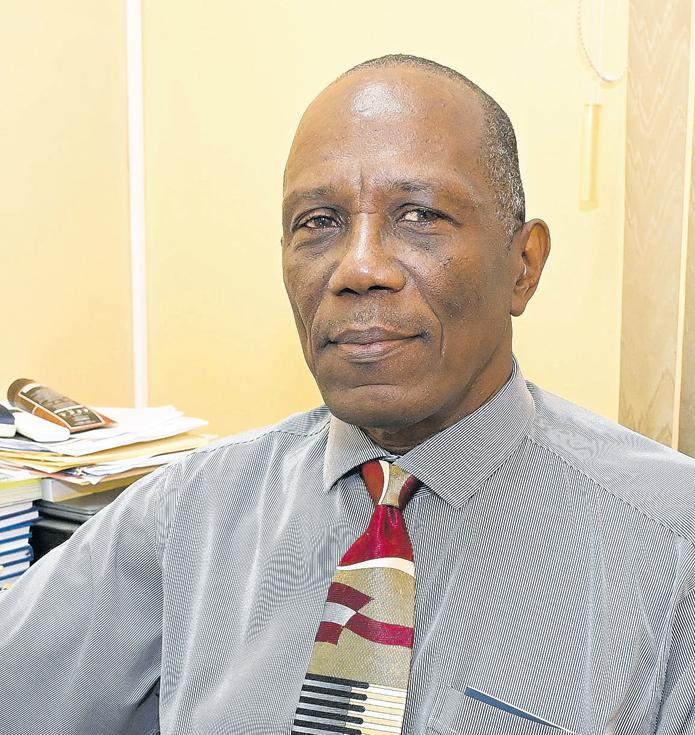

Recruiters need general digital or IT skills and knowledge of and experience with recruitment software, such as applicant tracking systems. They need analytical skills because successfully managing the recruitment funnel requires people who can use data to continually improve how they work. Effective communication skills are critical to negotiate with and guide candidates and hiring managers.
Other important skills that recruiters need to be successful include time management skills, active listening skills, and the ability to pick up non-verbal cues and body language. Teamwork skills are essential as recruiters frequently work with and interact with teams, both internal and external.
Patience, confidence, reliability and diligence are critical requirements as are relationship-building skills and the ability to multitask. The best recruiters are goal-driven and are always seeking continuous improvement and continuous development of their own knowledge, skills and technical know-how.










WHAT IS AN in-house recruiter?
An in-house recruiter is a human resources professional employed directly by a company to recruit and hire new talent. Their duties and responsibilities generally include:
• Understanding immediate and long-term organisational staffing needs.
• Finding suitable candidates (called candidate sourcing).
• Posting job openings in newspapers and various online platforms including the company’s website, job boards, and social media platforms.
• Screening candidates.
• Conducting initial interviews and assessments to evaluate candidates’ suitability and job fit for the role.
• Coordinating the interview process with hiring managers and other stakeholders.

• Negotiating job offers and handling onboarding processes for successful candidates.
What is a recruitment firm or external recruiter?
A recruitment firm is an external organisation that specialises in sourcing suitable candidates and matching candidates with job openings for client companies. Some of the approaches, techniques and strategies used by recruitment firms include:
• Maintaining a database of potential candidates

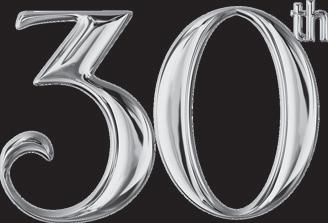



• Advertising job openings and proactively sourcing candidates through various channels.
• Screening and pre-qualifying candidates based on the client’s requirements.
• Conducting initial interviews and assessments to evaluate candidates’ skills and qualifications.
• Presenting a shortlist of qualified candidates to the client company for further interviews and consideration.
When in-house recruiting might be better
• You have a large and consistent hiring volume, making maintaining an in-house recruiting team cost-effective.
• You have the resources and budget to invest in building and maintaining a dedicated recruiting team.
When working with a recruitment firm may be the best option
• You do not have a large enough hiring volume to justify an in-house recruitment team.
• You have immediate or specialised hiring needs, making it more cost-effective to outsource recruiting.
• You need to fill highly specialised professional or technical roles requiring a broader candidate pool or industry expertise.







We wish you many more years of success From the Management & Staff of

Profiles Caribbean Inc. (PCI) has developed a substantial and valuable knowledge base in the areas of recruitment and talent acquisition.
With 30 years of expertise, PCI has refined a wide range of skills and services that provide immense value to its clients. These benefits include:
1. Comprehensive knowledge of the business environment
PCI possesses an in-depth understanding of the business environment in Barbados and the wider Caribbean. This insight includes recognising the challenges businesses face and how strategic recruitment can have a high-impact effect on improving business performance.
2. Expertise in the labour market
PCI’s deep knowledge of the labour market spans various economic and industry sectors, covering a wide range of jobs and professions. This ensures a strategic approach to sourcing the right candidates for any role.
3. Access to a robust candidate database
With a wide and ever-growing database of candidates from diverse industries and sectors, PCI offers clients unparalleled access to a pool of qualified and experienced professionals tailored to meet their recruitment needs.
4. A skilled and qualified recruitment team
PCI’s team comprises highly-skilled, experienced, and talented recruiters who provide expert guidance, advice, and exceptional service throughout the recruitment process. Clients can rely on their professional approach to achieving optimal results.
5. Proven ability to source passive candidates
PCI’s recruiters cultivate relationships with “passive candidates” — highly-skilled professionals who are not actively job hunting but are open to the right opportunity. This enables clients to access top-tier talent that may not be visible through traditional recruitment methods.
6. Enhanced access to a wider talent pool
The depth of PCI’s candidate database as well as the personal and professional networks of the recruiters provide clients with access to a wider and more diverse talent pool, ensuring the best candidates are considered for each role.
7. Specialised expertise and industry-specific skills
PCI’s recruiters possess specialised skills and deep knowledge of specific industries, enabling them to provide targeted and effective solutions tailored to the unique demands of each client.
8. Efficiency and timeliness
PCI is committed to providing timely and efficient recruitment solutions, minimising delays and ensuring clients meet critical hiring deadlines without compromising quality.
9. Commitment to confidentiality
Confidentiality is at the core of PCI’s operations. Clients and candidates can trust PCI to handle sensitive information and recruitment processes with the utmost discretion.
10. Informed Insights into employment trends
PCI uses its understanding of the employment market and candidate behaviour to align recruitment strategies with current market trends, ensuring both client and candidate interests are met effectively.
11. PCI as a great intermediary
PCI can provide great support to both employers and candidates by acting an as intermediary to comfortably clarify and resolve any issues such as compensation that may exist.

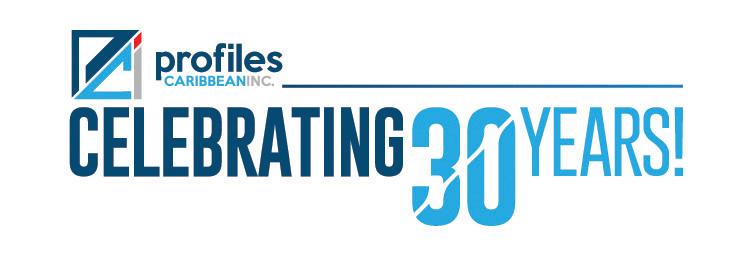











Recruitment
This service is an affordable alternative to the inhouse recruitment process and saves employers time and money by eliminating the sifting through of many applications in search of suitable candidates. PCI has a large database of both active and passive candidates, and, therefore, employers can have their pick of high-quality applicants.
Psychometric Assessments
We provide psychometric assessments for all levels of jobs in the organisation, from entry level to executive level positions. Our assessment tools specifically address the areas of Recruitment and Retention, Training, Coaching and Promotion, Succession Planning, Sales and Customer Service, Team Building, Performance Improvement as well as Leadership and Management Development.
Some of our Psychometric Assessments:
PXT Select®
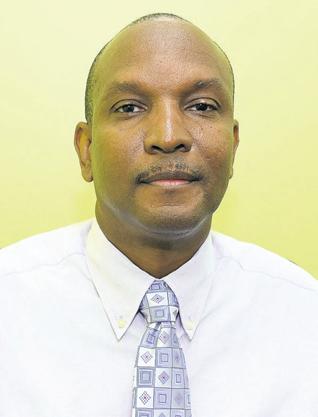


model.
The Five Behaviors®

As a “full person” assessment, it measures how well an individual fits specific jobs by assessing their cognitive ability, behavioural traits, and interests. The tool can be used for hiring, onboarding, coaching and employee development.
Step One Survey®
This powerful assessment provides insightful information useful for hiring employees who are honest, reliable, and hardworking by measuring an individual’s basic work-related values early in the candidate selection process.
Customer Service Profile®
Provides valuable information to identify and develop people with the traits and skills to excel in customer service roles. It helps minimise the cost of bad hires by measuring how well a person’s customer service-oriented traits fit specific customer service roles.
Checkpoint 360 Degree Survey
It evaluates the effectiveness of managers and leaders and provides a personalised approach for developing leadership skills and improving job performance. The survey combines feedback from the boss, direct reports, peers, and others who work with your leaders to measure performance across eight key management competencies.
Everything DiSC® Assessment
It is a personal development learning experience that measures an individual’s preferences and tendencies based on the DiSC®
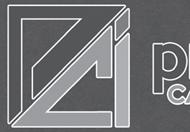
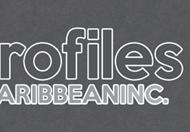
This is a powerful assessment tool that helps teams enhance their performance by focusing on five key behaviours – trust, conflict, commitment, accountability and results.
Genos Emotional Intelligence Survey
This survey measures how well you demonstrate emotionally intelligent workplace behaviours in comparison to others. The better you demonstrate the behaviours and competencies measured, the more effective your relationships and work should be. Reports are available for selection, sales, and leadership development.
Training
Positively impact the bottom line of your organisation by improving the management and leadership skills of your managers. Contact us to find out more about the management development programme, customer service training and the SHRM certifications.
Executive Coaching
We provide one-on-one targeted coaching interventions to assist individuals in realising their full potential and identifying and moving past blind spots and hindrances to their personal development and success.
HR Consulting
The company is engaged in other human resource consulting services and undertakes major consulting assignments, engaging the best local and regional talent when necessary to complete those assignments.


